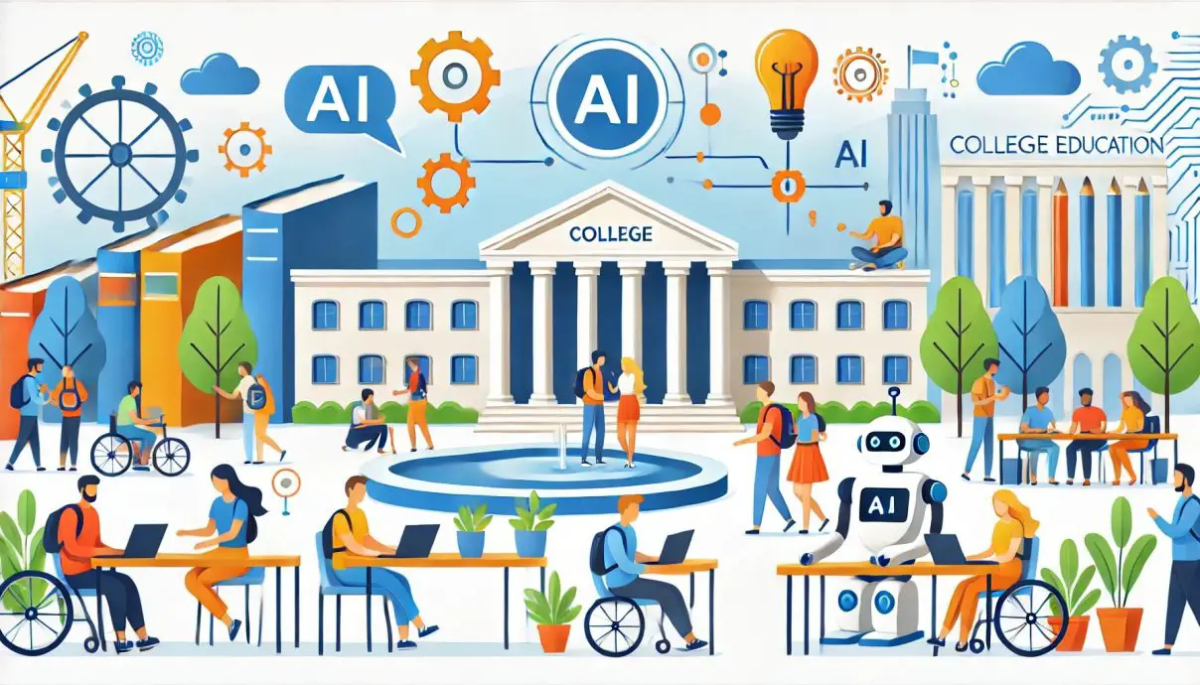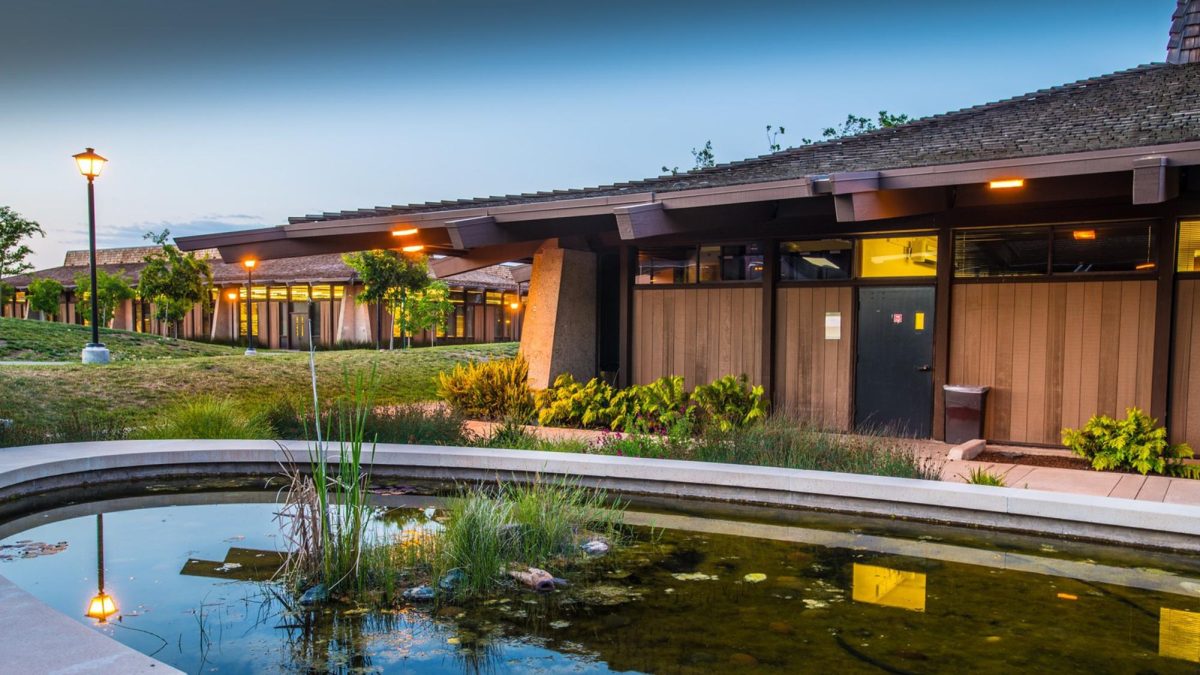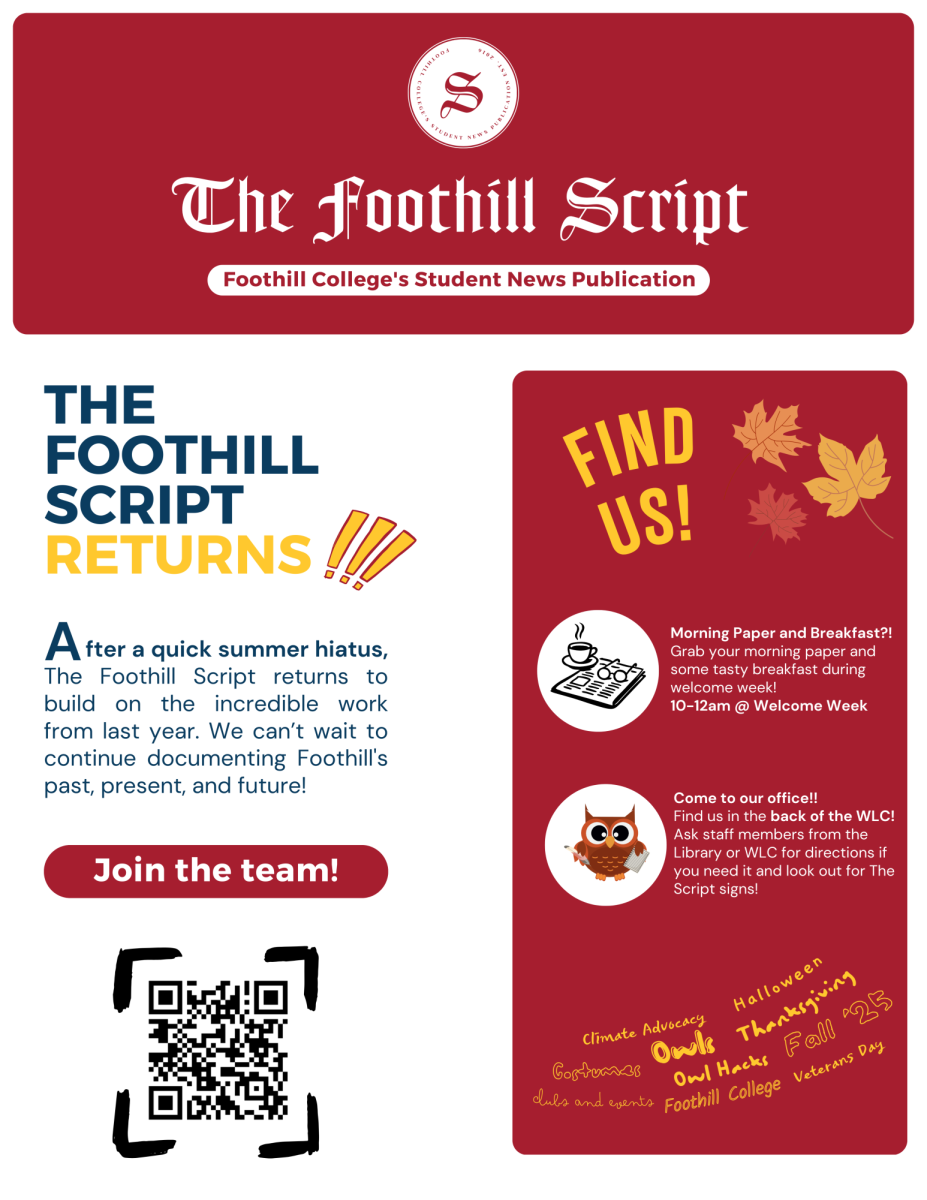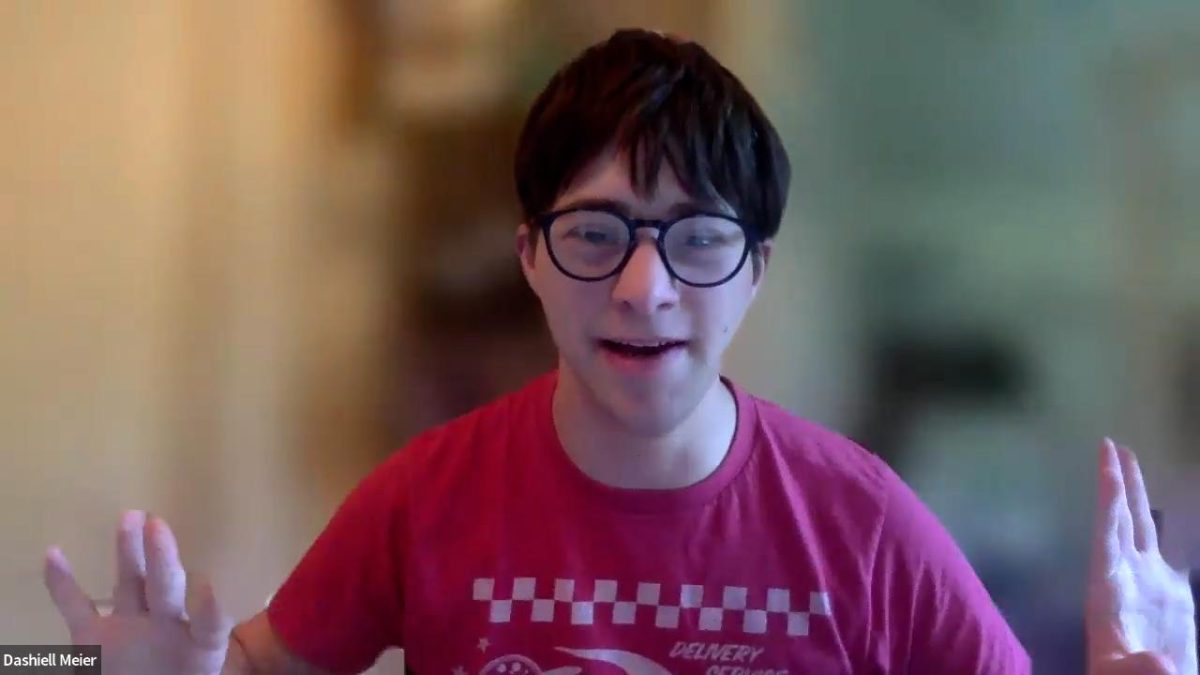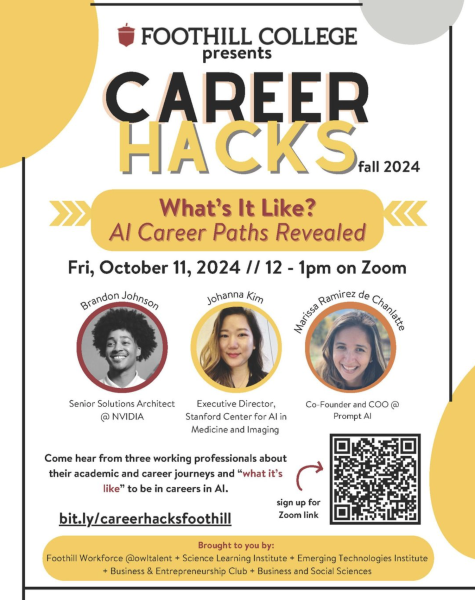 Last month, on October 11th, 2024, Foothill College’s Science Learning Institute hosted “What’s it Like: AI Career Paths Revealed” as part of their Career Hacks series – a series of events and workshops geared towards helping students learn more about potential careers and how to prepare for them, as well as network with current professionals in said industries. Via Zoom, three industry professionals were invited to share their diverse careers in AI: Brandon Johnson, a Senior Solutions Architect at NVIDIA, Johanna Kim, the Executive Director at Stanford Center for Artificial Intelligence in Medicine and Imaging, and Marissa Ramirez de Chanlatte, the co-founder and COO of Prompt AI. The event followed a question-answer format, with the three speakers answering questions prepared by Sofia Kim, the Science Learning Institute’s Director.
Last month, on October 11th, 2024, Foothill College’s Science Learning Institute hosted “What’s it Like: AI Career Paths Revealed” as part of their Career Hacks series – a series of events and workshops geared towards helping students learn more about potential careers and how to prepare for them, as well as network with current professionals in said industries. Via Zoom, three industry professionals were invited to share their diverse careers in AI: Brandon Johnson, a Senior Solutions Architect at NVIDIA, Johanna Kim, the Executive Director at Stanford Center for Artificial Intelligence in Medicine and Imaging, and Marissa Ramirez de Chanlatte, the co-founder and COO of Prompt AI. The event followed a question-answer format, with the three speakers answering questions prepared by Sofia Kim, the Science Learning Institute’s Director.
To start, the speakers were asked to give a brief description of their background and what a typical day in their role consists of. The first of the panelists, Brandon Johnson, graduated with a B.S. in Materials and Technology from North Carolina State University and previously “held roles in venture capital, engineering, and business development” prior to joining NVIDIA. He now works to connect the technical to the consumer side as an NVIDIA senior AI solutions architect, meeting with engineers at other companies to understand the specifics of their needs, determining which of NVIDIA’s technical solutions should be implemented, and helping them integrate it. His role requires a balance of specific technical knowledge and an understanding of how all the pieces of the problem come together.
Marissa Ramirez de Chanlatte currently holds a role in investing at Playground Global – a venture capital fund – where she finds new companies developing in AI and robotics and supports multiple aspects, including finances, publicity, and decision advising with the help of her technical knowledge. Before she makes the decision to invest in a group, she has to first develop a thesis on what technological ventures she believes would be both feasible and in demand upon release, requiring her to meet with both industry experts and potential consumers. She then reaches out to new start-ups according to the thesis, making the final decision to invest if she decides both their goals and capabilities align with her vision. Chanlatte studied at Foothill before transferring to Berkeley, where she completed her Bachelor’s in Mathematics, MS in computational Nuclear Engineering, and PhD with “thesis research in 3D computer vision and simulation”.
Lastly, Johanna Kim helps to “design initiatives that drive forward research, education, and policy” in her role as the Executive Director at Stanford Center for Artificial Intelligence in Medicine and Imaging (Amy Center) – a center dedicated to researching new applications of technology and AI in healthcare in hopes of improving equity in healthcare. In her work, Kim regularly meets not only with research, academic, and industry partners but also internal stakeholders, as well as the Center’s students and faculty to see what research they’re engaging in. Kim earned both a Bachelor’s in musicology and a Master’s in public health from UCLA in addition to an MBA from UMass Amherst.
When asked to share about the aspects of their jobs they enjoy or dislike the most, all 3 noted enjoying being able to work with other interested and motivated individuals in the field – whether that be the dedicated and optimistic researchers working to find solutions to various healthcare demands that Johanna Kim oversees, or the potential start-up investees or customers that Marissa Ramirez and Brandon Johnson work with. As for aspects of their career that they don’t quite like, both Johnson and Ramirez reference the long-term foresight and commitment their roles require. Ramirez notes the difficulty that comes with her role’s inherent uncertainty, stating, “It’s not just solving the problem or doing the work that somebody asked you to do, I need to figure out what work should be done […] I could be working
really hard but if I’m spending time on […] not the right investment, […] that could reflect poorly on me.” On a similar note, Johnson explains how his work deals with projects in the very early stages of their development, meaning it can take a very long time before the product actually hits the market.
To end the event, the three guests shared advice they had for those interested in the AI field in the future. They agreed an essential skill in the field lies in understanding the capabilities of AI and how it can be implemented in your field of interest. Regarding this matter, Johanna Kim quoted Dr. Curtis Langlotz, Director of the Amy Center, “AI won’t replace radiologists but the radiologists who use AI will replace the radiologists who don’t.” She believes the future will still consist of the same job titles of today, only now enhanced by AI. Hence, learning about the applicability of AI to the field you’re interested in is essential to setting yourself apart from the crowd. Brandon Johnson further emphasizes pursuing a field you’re passionate about, explaining, “There’s several disciplines of AI [..] probably 50 different domains of AI and no one person is expert at all of them […] figure out what you’re passionate about and then also figure out what you’re good at. The more exposure you get, the better.” He advises not honing in on any one niche early in your career, instead taking the time to first understand the concepts on a fundamental level so that you’re able to understand things on a universal level later on.
The career diversity of the panelists offered varying perspectives on the AI industry, revealing the various non-technical aspects associated with many AI roles and how they tie into the more popularly known technical side of things. They provided a more well-rounded perspective to event attendees on what AI career roles may entail to interested students starting off their career journeys.

